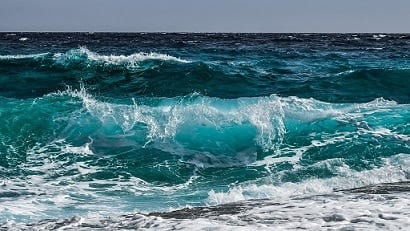A call was made today by Minister Bartlett as he presented “Resilience for Blue Economy” during Caribbean Maritime University Lecture Series.
Recognizing the tremendous contribution of the ocean to tourism development, Jamaica Tourism Minister, Hon. Edmund Bartlett has called on global tourism stakeholders to play a leading role in adopting and encouraging more sustainable values, attitudes, and practices that will promote healthy ocean and marine systems.
The Blue Economy is defined by the World Bank as “the sustainable use of ocean resources for economic growth, improved livelihoods and jobs, and ocean ecosystem health.”
“To ensure that the tourism industry plays its part in contributing to ocean sustainability there needs to be seriousness of intent, purpose and action among tourism stakeholders at all levels to address industrial actions that harm ocean and marine resources,” declared Mr. Bartlett. He added that: “Such firm commitment to sustainable behaviors and practices is necessary to help preserve the enormous benefits of healthy marine and coastal ecosystems to the economic livelihoods and survival of billions of people globally.”
Mr. Bartlett underscored that there was a moral responsibility on all industries, especially those that significantly harness or exploit ocean and marine resources in their value chains, “to make greater efforts to protect fragile and gradually depleting ocean and marine systems that have become increasingly susceptible to man-made phenomena.” These, he said, included ocean pollution, shipping and transport, dredging, offshore drilling, deep-sea mining, over-fishing and the degradation of coastal and marine ecosystems linked to sea level rise and or global warming.
The Minister outlined that the Organization for Economic Cooperation and Development (OECD) has predicted that marine and coastal tourism will be the largest sector of the global ocean-based economy by 2030 generating some US$777 billion in global revenue and employing 8.6 million people.
Noting that small island developing states and other coastal nations were particularly reliant on coastal and marine tourism, Minister Bartlett cited that for the Caribbean, the industry accounts for a quarter of the total economy, and a fifth of all jobs. He drew attention to a 2016 study by the World Bank which estimated the economic value of the Caribbean Sea coastal and marine ecosystems at US$54.55 billion.
“Unfortunately, marine and coastal ecosystems are often threatened by tourism development.”
Minister Bartlett explained during the University Port Royal lecture that the areas that attract tourists have been coming under increasing pressure from the damage and pollution caused by tourist facilities and the supporting infrastructure.
Against this background, he pointed out that the Blue Economy approach recognized and placed renewed emphasis on the critical need for the international community to address effectively the sound management of resources in and beneath international waters by the further development and refinement of international law and ocean governance mechanisms.
Minister Bartlett said: “It is my view that a Blue Economy approach where ecosystem services are properly valued and incorporated into development planning will further advance the transition of the tourism industry.” He explained that this approach would aid in “guiding tourism development and promoting lower impact activities, such as ecotourism and nature-based tourism, where the natural capital is maintained as an integral part of the process.”
He posited that efficiency and optimization of resource use were paramount whilst respecting environmental and ecological parameters, including where sustainable, the sourcing and usage of local raw materials and utilizing where feasible “blue” low energy options to realize efficiencies and benefits.





